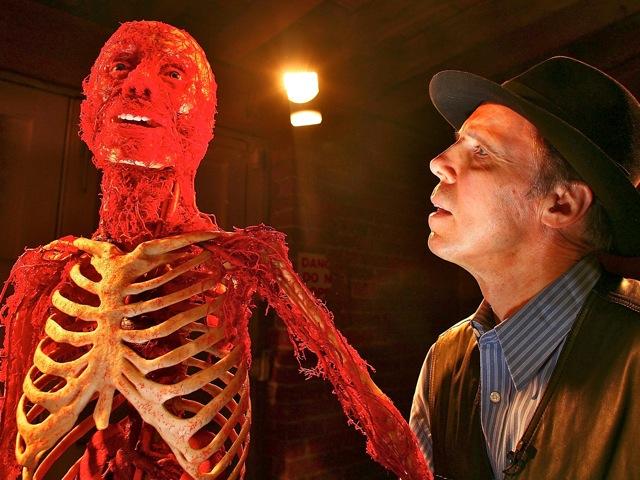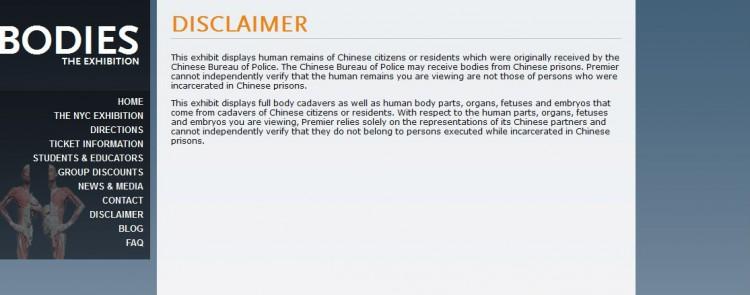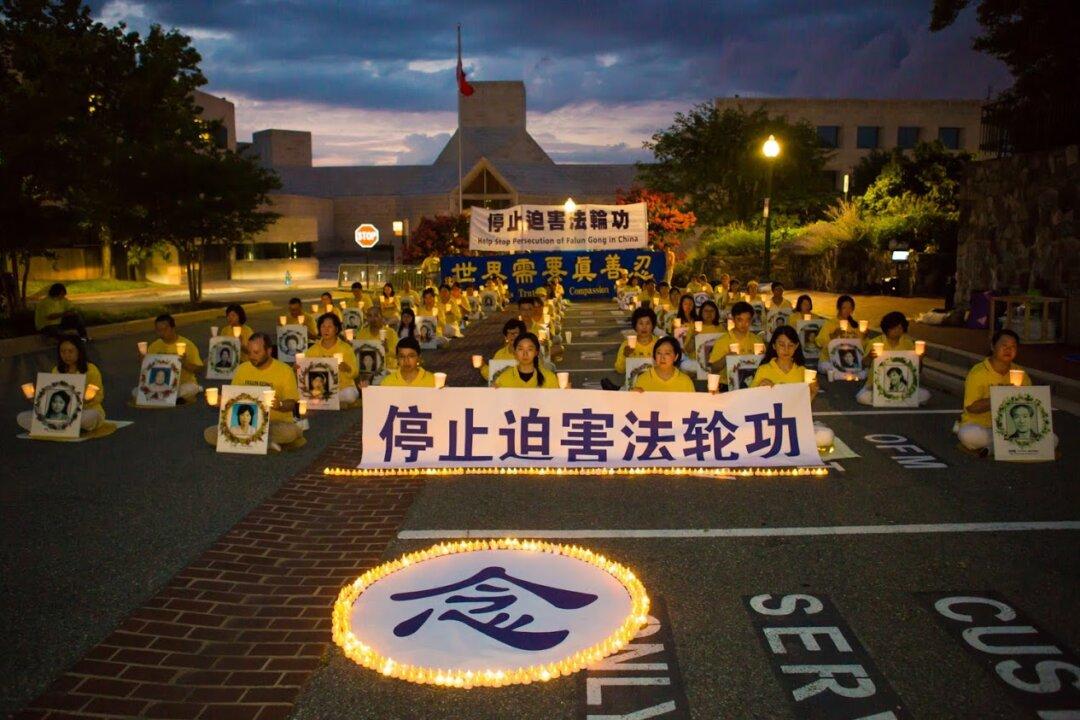
Professor Gunther von Hagens stands next to one of his plastinated bodies prior to the launch of an exhibition, on Feb. 21, 2008, in Manchester, England. Chinese netizens and press are curious about where exhibitions such as this one obtained their genuine human bodies. Christopher Furlong/Getty Images
The Chinese Internet is buzzing with speculation over the source of bodies used to make plastinated corpses that have been touring in exhibitions around the world. The intense discussion on microblogs, major Chinese news portals, and in the mainland press, was set off by a series of articles in the Chinese-language edition of The Epoch Times.





